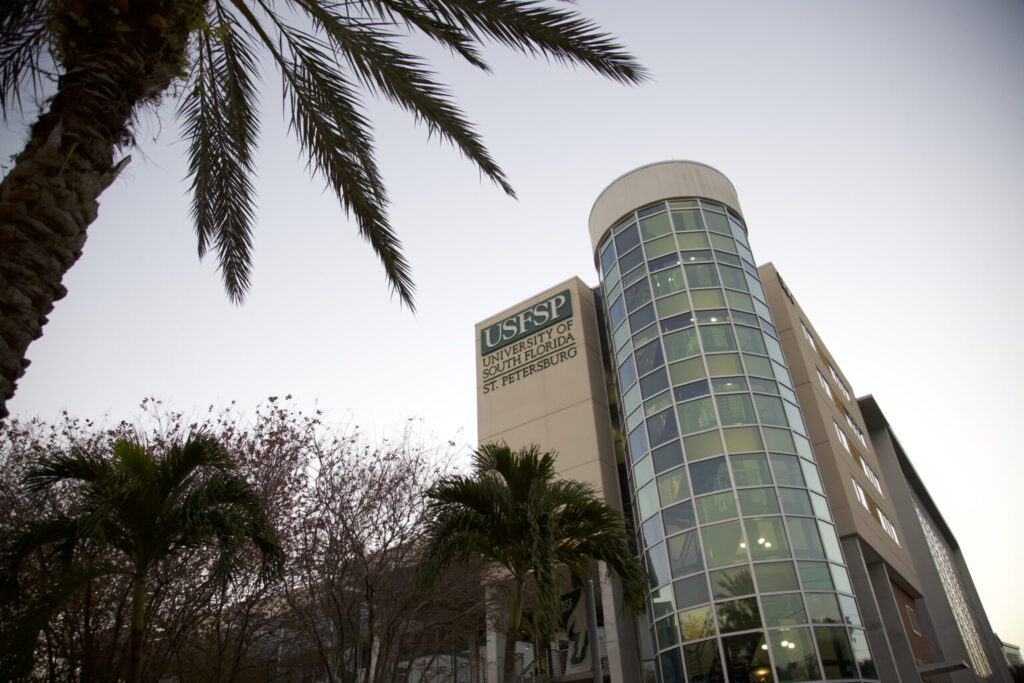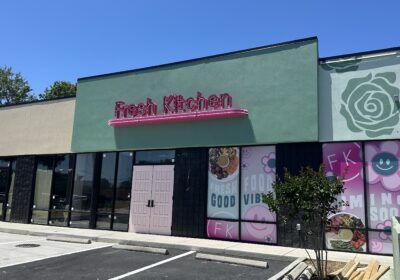Racial equity consortium launches fellowship program for St. Pete campus students, Pinellas County institutions

In an effort to combat racial hierarchies on college campuses, a university-based St. Petersburg consortium is introducing opportunities for students to get involved with their communities and turn words into actions.
The St. Petersburg Higher Education Consortium for Racial Justice, which includes the USF St. Pete campus, Eckerd College, St. Petersburg College and Stetson University College of Law, launched the St. Petersburg Racial Justice Fellows Program focused on helping students learn and work on projects focused on racial disparities and injustices across their communities.
“[The fellowship] will bring students together in a community and a cohort in order to discuss these important topics,” said Caryn Nesmith, director of community relations at the St. Pete campus.
The program, which will start Sept. 30, will select eight students across colleges and teach them about the history of racism in St. Petersburg as well as its anti-racist policies. Students will also participate in projects supporting racial healing and transformation across Pinellas County, according to Nesmith.
Students selected as part of the program’s first cohort will receive up to $2,000 during the 2021-22 academic year, including a $500 stipend for both fall and spring semesters as well as a $1,000 stipend for the summer internship. Funding for future cohorts will depend on future donations.
Students will dedicate up to 60 hours per semester and up to 120 hours for a part-time, six-week summer internship. Participants will have the choice of interning with nonprofit organizations, businesses or government agencies around the county with focuses on racial justice and equity.
Fellows will also go to biweekly meetings with consortium institutions and events related to racial justice.
Each institution will have a unique program tailored to meet its specific needs. The St. Petersburg program, for example, will create a student advisory board to allow students to voice their opinions on multicultural programming and initiatives across campus.
Michelle Madden, chief diversity officer at the St. Pete campus, said interested students must complete an application by Sept. 13 to be considered for the program. Students interested in becoming a fellow must be enrolled full time and plan to graduate in spring 2022 or later.
Students will have to answer three essay questions, under 500 words each, about how the fellowship will impact their leadership journey and ways to lead an antiracism movement in their local communities. The selection process will begin after the application closes.
Nesmith said she hopes students will be positively impacted by their experience in their cohorts and inspire change in their communities.
“The consortium is alive and thriving, so we are hoping to bring awareness to students about issues of race and equity that they will take forward and move forward into their lives,” Nesmith said. “That’s one of our first initiatives as a consortium that we hope will bring positive change.”
The fellowship came to fruition after a team of three representatives from each university virtually attended the Truth, Racial Healing and Transformation Summer Institute from June 22-25. During the event, the team participated in workshops focused on racial justice and eventually were able to develop an action plan to bring back to their respective campuses, according to Madden.
“The workshops helped us to really think about our goals moving forward, because prior to going to the summer institute, we didn’t have a solid action plan,” she said.
“So during that time, we sat down and took the time to discuss and create a plan that helped us to solidify our initial action plan and prioritize some of the things that we would like to see within a reasonable timeline.”
Matthew Cimitile, communications officer for the St. Pete campus, said the impact of the consortium’s future plans will hopefully inspire change beyond the city.
“I think the really unique aspect of uniting these higher education institutions together is that you’re getting more people, such as having more students eligible for these fellowships, involved to work on a joint problem. There’s just more resources, and you can get more done,” he said. “I think the impact spreads, and we get to reach more people along the way.”
Madden said the opportunity to work with the community will hopefully open the door to other possibilities beyond the fellowship program.
“I believe collaborating with other higher education institutions, along with the help from the Foundation for Healthy St. Pete, who provides lots of financial and planning support, is going to really open up a lot of possibilities for our students collectively across St. Petersburg,” she said.
“I’m really excited about this collaboration and what it means for our individual universities, the students and the community at large.”






